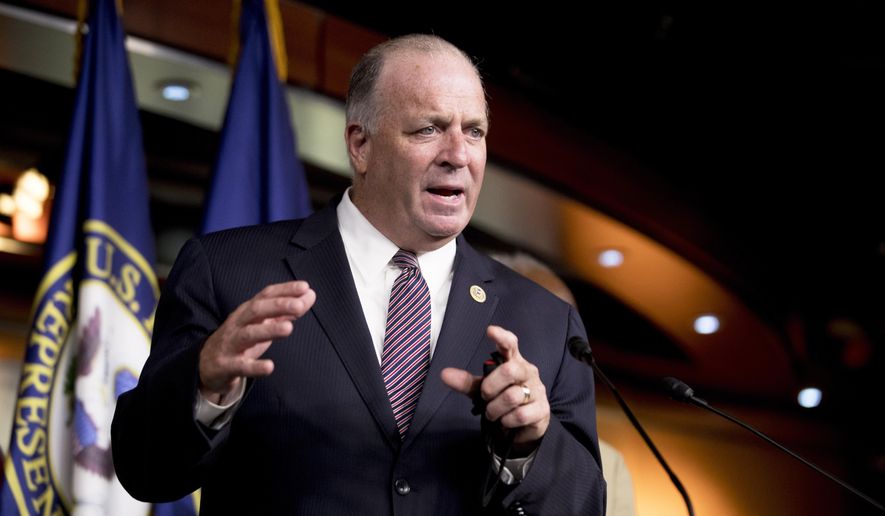The House passed a measure to reimpose tariffs on Chinese solar panels paused by the Biden administration, dealing a bipartisan blow to President Biden in an effort to crack down on a foreign adversary.
The bipartisan measure passed 221-202 on Friday, with a dozen Democrats crossing party lines in the GOP-controlled House to support it. The vote marked the latest example of Democrats voting with Republicans to roll back Mr. Biden’s regulatory agenda.
Eight House Republicans broke ranks to oppose the bill.
The legislation is expected to easily clear the Senate as Democrats line up to support it. The measure must receive a vote in the Democratic-led Senate under the Congressional Review Act and needs only a simple majority rather than the usual 60-vote filibuster threshold to pass.
Mr. Biden has vowed to veto the bill, which would mark his third veto.
The bipartisan measure would reinstate tariffs against solar imports from Southeast Asian countries through which Chinese companies funnel their products to skirt U.S. trade laws. The Commerce Department, at the direction of Mr. Biden, froze solar tariffs last year until June 2024 for Malaysia, Cambodia, Thailand and Vietnam because they produce 80% of the panels used in U.S. projects.
The issue has fractured Democrats over whether to prioritize clean energy or punish China.
Rep. Dan Kildee of Michigan was the lead Democratic author.
“This should not be a partisan issue,” Mr. Kildee said in a recent statement. “We cannot allow foreign solar manufacturers to violate trade laws, especially when it comes at the expense of American workers and businesses. By suspending tariffs on those who violate our trade laws, we are undermining our own American manufacturers and workers.”
Reimposing the tariffs, the White House says, would jeopardize the domestic solar industry and Mr. Biden’s climate change agenda by stripping away a cheap foreign supply of panels. The tariff suspension is meant to act as a bridge to support domestic solar projects while more American manufacturing comes online.
“Passage of this joint resolution would undermine these efforts and create deep uncertainty for jobs and investments in the solar supply chain and the solar installation market,” the White House Office of Management and Budget said in its veto threat. “The commerce rule provides a short-term bridge to ensure there is a thriving U.S. solar installation industry ready to purchase the solar products that will be made in these American factories once they are operational.”
The solar industry has also sounded the alarm, saying the legislation would impose retroactive tariffs that would cripple U.S solar projects and cost tens of thousands of clean energy jobs.
Still, at least a handful of Senate Democrats say they’ll defect against the administration to support the bill.
Sen. Joe Manchin III of West Virginia signed on as a co-sponsor, making him one of several Senate Democrats who say they’ll vote for it.
Those other Democrats include Sens. Sherrod Brown of Ohio and Bob Casey of Pennsylvania, plus Senate Finance Committee Chairman Ron Wyden of Oregon. Sen. Jon Tester, Montana Democrat, remains undecided.
Mr. Manchin, Mr. Brown, Mr. Casey and Mr. Tester face tough reelections next year.
“The Chinese government will do anything to undermine American manufacturing and would like nothing more than to kill the American solar manufacturing industry before it takes off,” Mr. Brown said. “The president got this one wrong.”
Mr. Manchin, who chairs the Senate Energy Committee, said he “cannot fathom why the administration and Congress would consider extending [Chinese] reliance any longer.”
Congress will have the chance to override Mr. Biden’s forthcoming veto if both chambers can muster a two-thirds majority.
• Ramsey Touchberry can be reached at rtouchberry@washingtontimes.com.




Please read our comment policy before commenting.